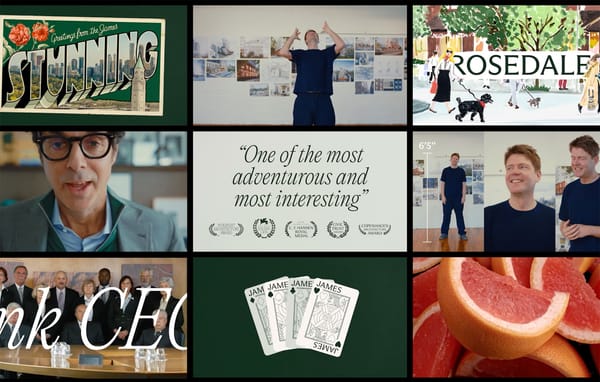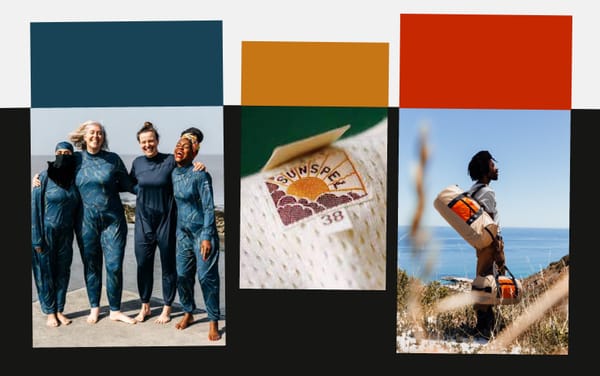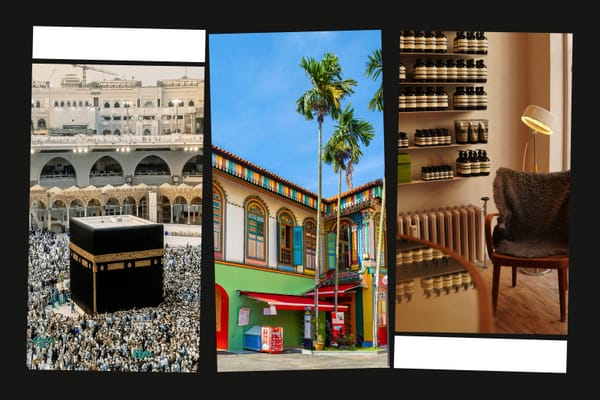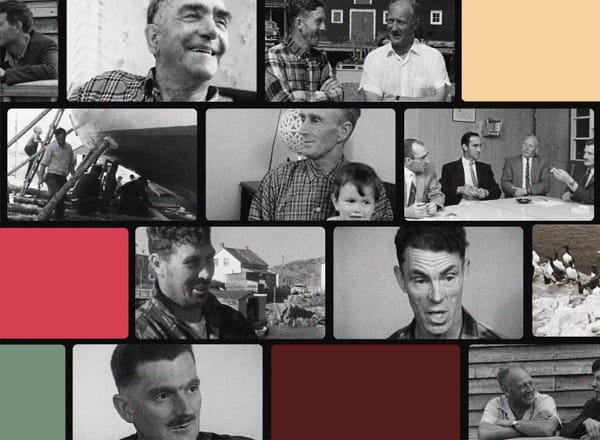The Neverending Story
A love letter to Wikipedia
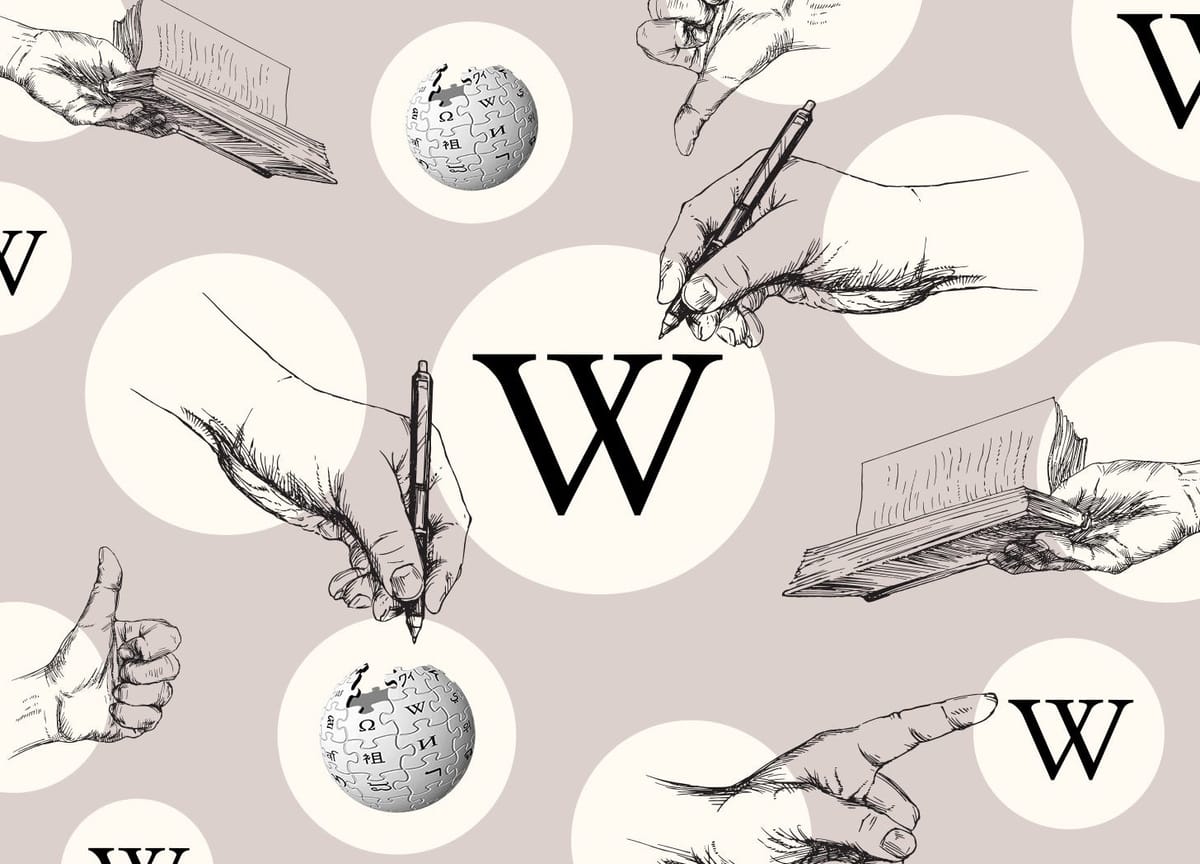
Two weeks ago, Wikipedia finished rolling out its first redesign in more than a decade. You may not have noticed, which is intentional. Unlike many web redesigns, “The updated Wikipedia interface does not remove any previous functionality.” And it adds only a few elements, including a prominently-placed language picker and a table-of-contents sidebar. For all that has remained the same, however, the design team consulted thirty volunteer groups from around the world and read through two hundred thousand words of feedback.
That commitment to consultation and discourse is very on-brand, and one that many organizations can learn from. As Katherine Maher, former director of the Wikimedia Foundation, wrote in 2021, “Consulting widely, listening with sincerity, debating with respect, and weighing difficult tradeoffs with candor: These practices work slowly, but build lasting solutions, as well as the relationships and trust essential to weathering uncertainty.”
The new design will be loaded approximately five billion times per month, making Wikipedia, as of December 2022, the seventh-most visited webpage on the internet and the only non-commercial site in the top fifty. I’m old enough to remember its design several iterations ago, and an era, in the first decade after it was launched in 2001, when there were heated public debates about the site’s accuracy. Those concerns have largely subsided, at least for the most popular pages, and the Wikimedia Foundation itself is first to claim that you shouldn’t take its entries as gospel. That said, the site’s content is at least as accurate as the 1986 edition of the World Book Encyclopedia I devoured as a kid, and is both updated more frequently and unimaginably broader in scope.
An open posture, building in public, and a commitment to incremental gains in accuracy and usefulness—these, too, are lessons that many organizations could profitably take to heart. Think about it: what other major online platform has, over time, become both more comprehensive and more balanced?
Wikipedia’s primary use case is search: type in the URL, enter your search term, find out what you want to know. But any site with its incredible surface area—six million articles in English alone, and articles in three hundred other languages—offers many entry points. Here are a few that I enjoy:
- The Current Events portal. A one-stop page for global news that is updated constantly and is free of editorializing. I learn more about elections, accidents, sporting events, and natural disasters in faraway places than I ever would from other English-language news sources.
- Weeklypedia. This email newsletter uses Wikimedia tools to create lists of the most-edited articles and most active discussions each week. I always know when a new season of the Tamil-language edition of the Indian TV show Bigg Boss airs—the debates must be fiery.
- Wikiracing, in which everyone starts at one page (say, Emperor penguin) and, using clicks only, races to a very unrelated page (say, Emperor Gaozong of Tang). It’s a surprisingly fun game played with friends and a useful ice-breaker among strangers—try it at your next client workshop.
- Depths of Wikipedia. Perhaps you’ve encountered this viral sensation, run by Annie Rauwerda, which reliably dredges up the absurd, on Instagram or Twitter.
- Edit-a-thons, in which groups of people gather with laptops and spend an afternoon building a corpus of knowledge in an under-resourced subject area.
I can only read the English-language version, and yet I always come away from fifteen minutes on the site with an appreciation of the depth and variety of the world and its peoples. It is the ultimate rabbit hole but, arguably unlike YouTube, with no algorithm and no suggestions, isn’t one that promotes unhealthy radicalization.
Wikipedia is a massive experiment in decentralization—in some sense, the site is a reflection of us. That’s why it’s imperfect. There are an estimated three hundred thousand active editors, compared to Twitter’s more than two hundred million active users (and Facebook’s two billion). But, like us and like our organizations, and unlike Twitter and Facebook, we can all improve Wikipedia. Anyone can make an account and edit the site.
I created mine in 2018 and fixed a few typos or updated the pages of my favorite writers and musicians to include their newest releases. Then I ignored it. But as I’ve felt more uncomfortable posting to platforms owned by Mark Zuckerberg or Elon Musk, I’ve begun logging in to my account again. It feels gratifying to use time otherwise spent posting into an algorithmic void to share my knowledge in a way that helps countless others. Why not make your own account and do the same? Perhaps I’ll see you in the Talk section.
Good Links
- 💩“This is enshittification: surpluses are first directed to users; then, once they're locked in, surpluses go to suppliers; then once they're locked in, the surplus is handed to shareholders and the platform becomes a useless pile of …”
- 🐭 “In Disney’s analytics department, data science PhDs pore over your traces like a trail of breadcrumbs, scrutinizing your every move online and off, to sell you more content, more princess dresses, more Marvel movies.”
- ⌨️ The official CBC/Radio-Canada typeface, which you can access and use via Google Fonts, has just been extended to include the Unified Canadian Aboriginal Syllabics.
- 🌍 “Whether one believes in climate change is no longer the interesting question; now it’s ‘What do you think is the right approach?’”


